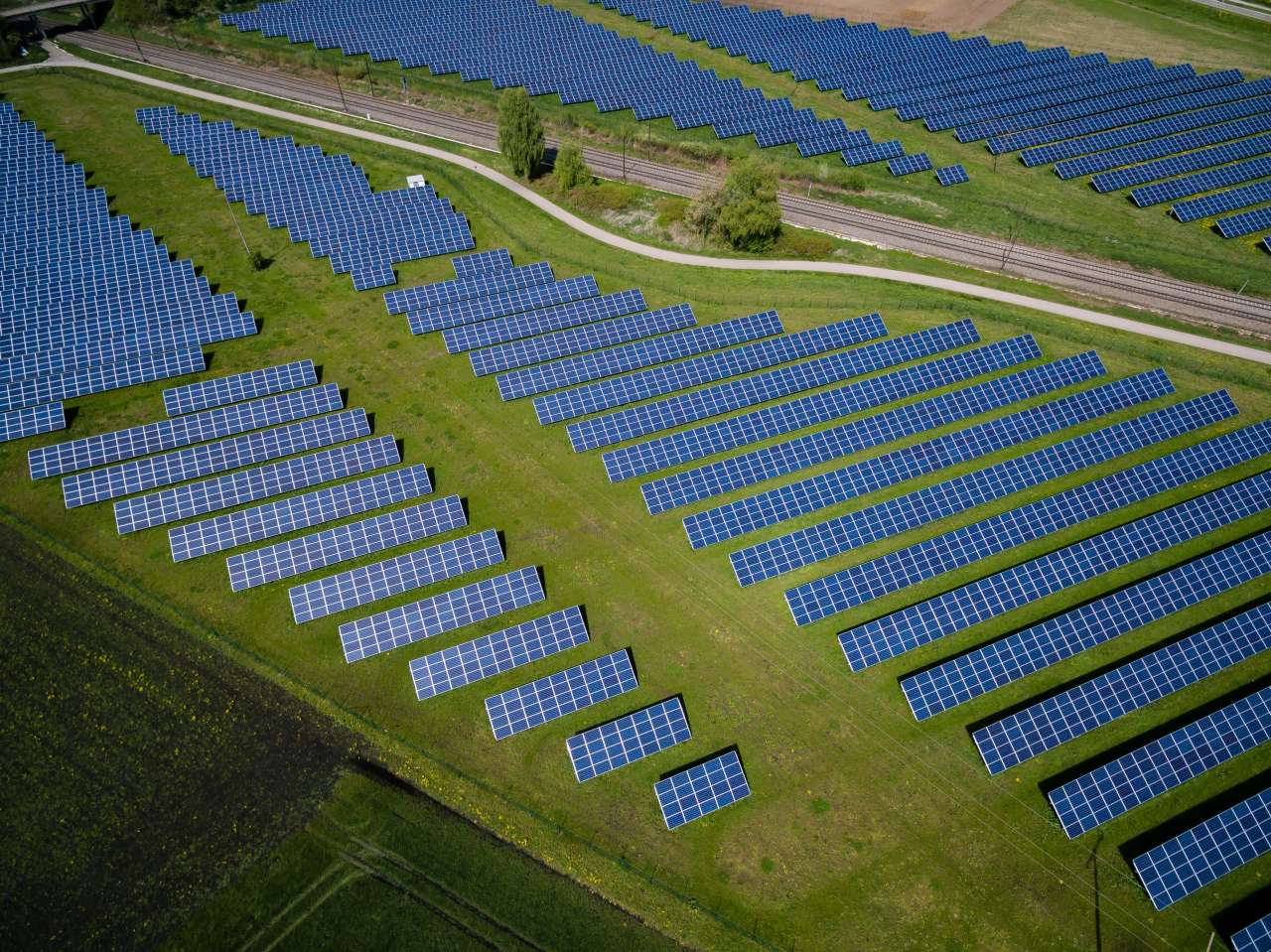What is green finance?
With recent commitments made by the UK government to reach net zero by 2050, the interest from businesses in green finance has grown significantly. We explore how green finance works and what some of the benefits are for businesses.

Green finance strategy
Green finance, also referred to as sustainable finance, aims to connect businesses to the funding they need to help reduce greenhouse gas (GHG) emissions to net zero.
Green Finance supports businesses looking to go 'greener' through purchasing low carbon assets, investing in green technologies and connecting businesses with environmentally friendly lenders.
Green finance enables businesses to reduce their carbon footprint by greening their business operations, products or services. This enables businesses to achieve sustainable growth aligned to the UK’s broader climate action ambitions.
Here at Funding Options, we’ve identified lenders on our panel that can provide this form of funding, and we’re delighted to be able to offer this to our customers. Choosing to ‘go green’ shouldn’t be a financial burden for businesses so why not start your green finance journey with us today.
How does green finance work?
Green lenders may either have a product specifically designed to assist a business transition to net zero. This may include purchasing an electric vehicle, installing solar panels or biomass boilers. Equally a green lender may themselves have a commitment to being carbon neutral. This will enable sustainably conscious borrowers to find a lender that meets their environmental preferences.
If you run a business and you’re not sure how much carbon emissions you generate, there are a few resources you can use online that can help to give you a clearer picture of the impact it might currently have.
Benefits of applying for green finance
Whilst there are many benefits to choosing green finance to help develop and improve the daily running of a business, the key benefits to consider are;
Meeting the changing expectations of your customers- modern consumers have shifted significantly to purchasing goods and services from sustainable businesses, preferring to understand the carbon footprint of the business before purchasing or engaging with them
Improve your energy efficiency - by utilising more renewable energy sources to help power their business, SMEs can reduce their energy costs whilst reducing their carbon emissions too
Helps the UK reach net-zero goals- Making up 97% of the UK’s economy, SMEs will have a significant impact on helping the UK reduce carbon emissions and reach the net-zero goal for 2050
How can SMEs use green finance to reduce their carbon footprint
According to the BBB, a third of the UK’s emissions come directly from SMEs, it's vital there is a finance option that can offer the right funding for businesses to take climate action. . There are lots of ways SMEs can reduce their carbon footprint and make environmentally-friendly changes to the running of their business. Some of the changes can include;
Minimising waste created from products, packaging and manufacturing and switching to more sustainable options
Introducing travel options for staff such as the national bike scheme, ride-share incentives or salary compensation for public transport loans etc
Switching energy providers or using renewable energy options. Swapping to solar panels or biomass boilers can make a significant impact on emissions
Invest in energy-efficient technologies and infrastructure such as LED light bulbs and smart meters for commercial buildings
Reviewing the supply chain you use (if your business has one) Are your suppliers transparent in their manufacturing, can things be actively changed?
It’s important that all businesses in the UK do their bit to significantly reduce their climate impact in line with the Paris Agreement, whilst running their business- no matter what size the company is.
Funding Options is a part of Tide. If you proceed, you’ll be redirected to Tide.
This quote won't affect your credit score
Get access to 120+ lenders
What is green finance?
With recent commitments made by the UK government to reach net zero by 2050, the interest from businesses in green finance has grown significantly. We explore how green finance works and what some of the benefits are for businesses.
Funding Options is a part of Tide. If you proceed, you’ll be redirected to Tide.
This quote won't affect your credit score
Get access to 120+ lenders
Green finance strategy
Green finance, also referred to as sustainable finance, aims to connect businesses to the funding they need to help reduce greenhouse gas (GHG) emissions to net zero.
Green Finance supports businesses looking to go 'greener' through purchasing low carbon assets, investing in green technologies and connecting businesses with environmentally friendly lenders.
Green finance enables businesses to reduce their carbon footprint by greening their business operations, products or services. This enables businesses to achieve sustainable growth aligned to the UK’s broader climate action ambitions.
Here at Funding Options, we’ve identified lenders on our panel that can provide this form of funding, and we’re delighted to be able to offer this to our customers. Choosing to ‘go green’ shouldn’t be a financial burden for businesses so why not start your green finance journey with us today.
How does green finance work?
Green lenders may either have a product specifically designed to assist a business transition to net zero. This may include purchasing an electric vehicle, installing solar panels or biomass boilers. Equally a green lender may themselves have a commitment to being carbon neutral. This will enable sustainably conscious borrowers to find a lender that meets their environmental preferences.
If you run a business and you’re not sure how much carbon emissions you generate, there are a few resources you can use online that can help to give you a clearer picture of the impact it might currently have.
Benefits of applying for green finance
Whilst there are many benefits to choosing green finance to help develop and improve the daily running of a business, the key benefits to consider are;
Meeting the changing expectations of your customers- modern consumers have shifted significantly to purchasing goods and services from sustainable businesses, preferring to understand the carbon footprint of the business before purchasing or engaging with them
Improve your energy efficiency - by utilising more renewable energy sources to help power their business, SMEs can reduce their energy costs whilst reducing their carbon emissions too
Helps the UK reach net-zero goals- Making up 97% of the UK’s economy, SMEs will have a significant impact on helping the UK reduce carbon emissions and reach the net-zero goal for 2050
How can SMEs use green finance to reduce their carbon footprint
According to the BBB, a third of the UK’s emissions come directly from SMEs, it's vital there is a finance option that can offer the right funding for businesses to take climate action. . There are lots of ways SMEs can reduce their carbon footprint and make environmentally-friendly changes to the running of their business. Some of the changes can include;
Minimising waste created from products, packaging and manufacturing and switching to more sustainable options
Introducing travel options for staff such as the national bike scheme, ride-share incentives or salary compensation for public transport loans etc
Switching energy providers or using renewable energy options. Swapping to solar panels or biomass boilers can make a significant impact on emissions
Invest in energy-efficient technologies and infrastructure such as LED light bulbs and smart meters for commercial buildings
Reviewing the supply chain you use (if your business has one) Are your suppliers transparent in their manufacturing, can things be actively changed?
It’s important that all businesses in the UK do their bit to significantly reduce their climate impact in line with the Paris Agreement, whilst running their business- no matter what size the company is.
